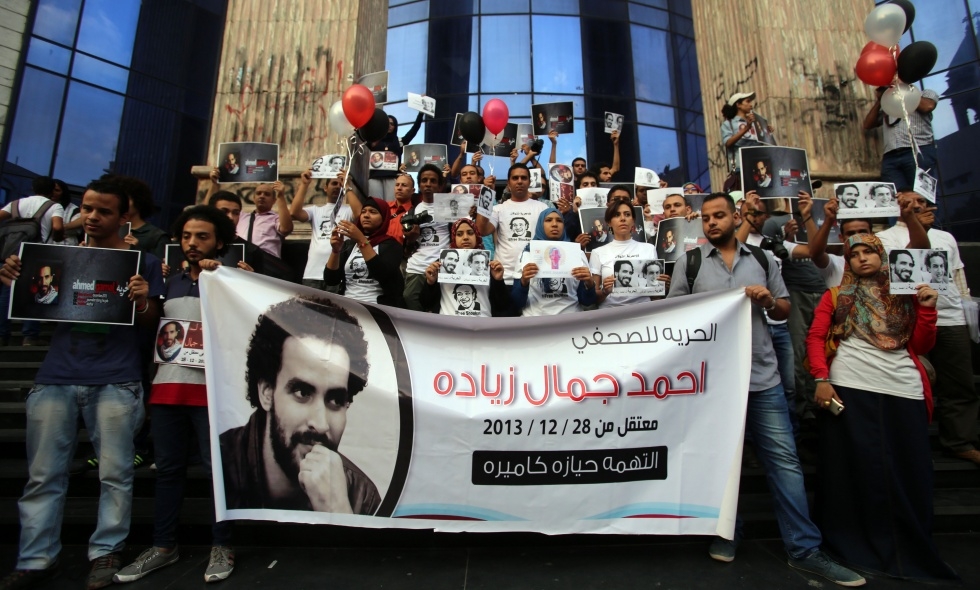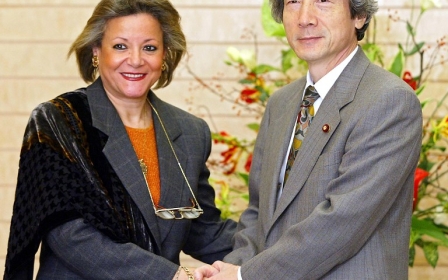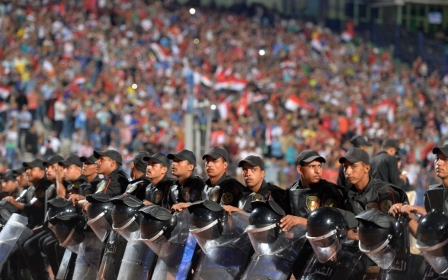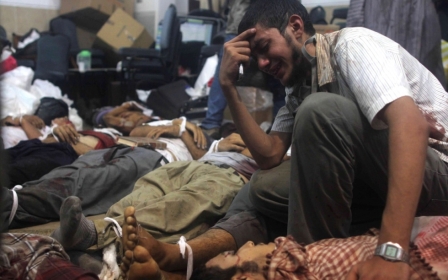British media figures stand in solidarity with Egyptian colleagues

A group of high-profile British journalists and media professionals signed a public letter of support on Sunday in solidarity with Egyptian journalists, who have refused to comply with a joint statement issued last month by their editors pledging uncritical support to the Egyptian state.
The letter, signed by Channel 4 News’s Jon Snow, the Guardian’s Egypt correspondent Patrick Kingsley, the paper’s former Egypt correspondent Jack Shenker, The Ethical Journalism Network’s director Aidan White and City University journalism professor Roy Greenslade, was published by the Guardian newspaper.
“We, the undersigned journalists and media professionals, stand in solidarity with our Egyptian colleagues in their struggle for a free and independent press,” the letter says. “Intimidation of the media has been a central tactic of every Egyptian regime in recent years, and the fight by journalists to resist such intimidation has been a vital component of the country’s broader battle against state tyranny.”
It adds: “Egypt’s rulers must know that their attempts to repress any form of public scrutiny or dissent will be met with fierce opposition, not just by local reporters but by the wider international community of journalists as well.”
Egypt has received wide international condemnation after the show trial and imprisonment of three al-Jazeera English correspondents in June. It generated global headlines and a widely followed social media campaign that used the Twitter hashtag #FreeAJStaff to call for their release.
A total of 11 journalists have been killed since Egypt’s 2011 uprising began, and about 70 more, local and foreign, have been detained since President Abdel Fattah al-Sisi took over in July 2013, according to the Guardian.
The Association for Freedom of Thought and Expression, an Egyptian non-governmental organisation (NGO), released a report on Monday in which it said it has documented 184 violations against foreign journalists working in Egypt over a three year period from 2011 to 2014 that include physical and sexual abuse, killings, confiscations of equipment, raiding their headquarters and preventing them from work.
The Guardian described Egypt as “one of the most dangerous countries in the world to be working in as a journalist".
Egyptians’ civil and human rights are facing one of their worst threats in decades. Today is the deadline for Egypt’s NGOs to register under what has been described by human rights groups as draconian legislation; many organisations are in fear of being shut down and facing criminal charges for their work. Thousands have been put in jail under a controversial protest law, and the government has recently expanded the scope for military trials against civilians.
Over 640 Egyptian journalists have signed a statement condemning the newspaper editors’ pledge in which they vowed to ban any criticism of the army, police and judiciary to support the country’s war on terror.
“We see this statement as promoting the return to a period of tyranny and repression, and the rule of one opinion,” the journalists said.
The Guardian has called on other international journalists to sign a pledge of support through a statement posted on the website of the Egyptian Solidarity Initiative, a group of London-based activists: http://egyptsolidarityinitiative.org/journalists-statement/.
New MEE newsletter: Jerusalem Dispatch
Sign up to get the latest insights and analysis on Israel-Palestine, alongside Turkey Unpacked and other MEE newsletters
Middle East Eye delivers independent and unrivalled coverage and analysis of the Middle East, North Africa and beyond. To learn more about republishing this content and the associated fees, please fill out this form. More about MEE can be found here.




